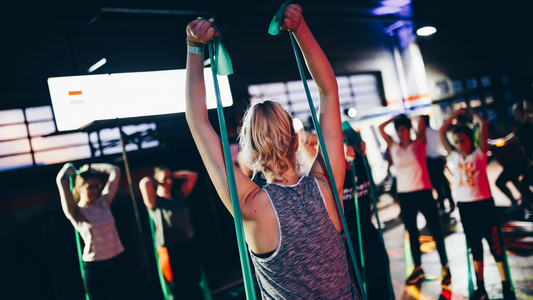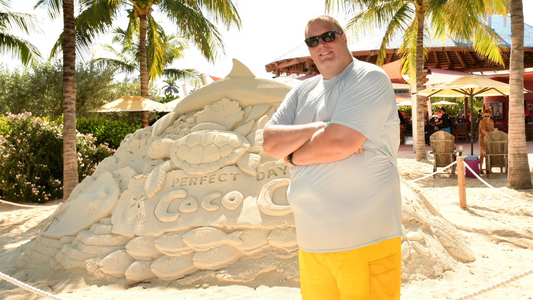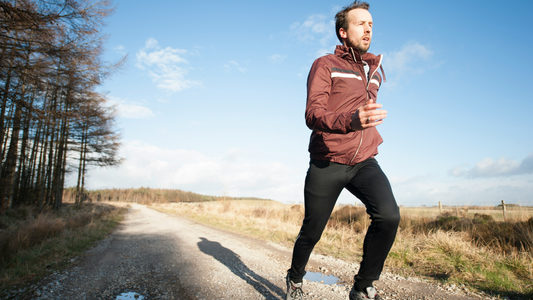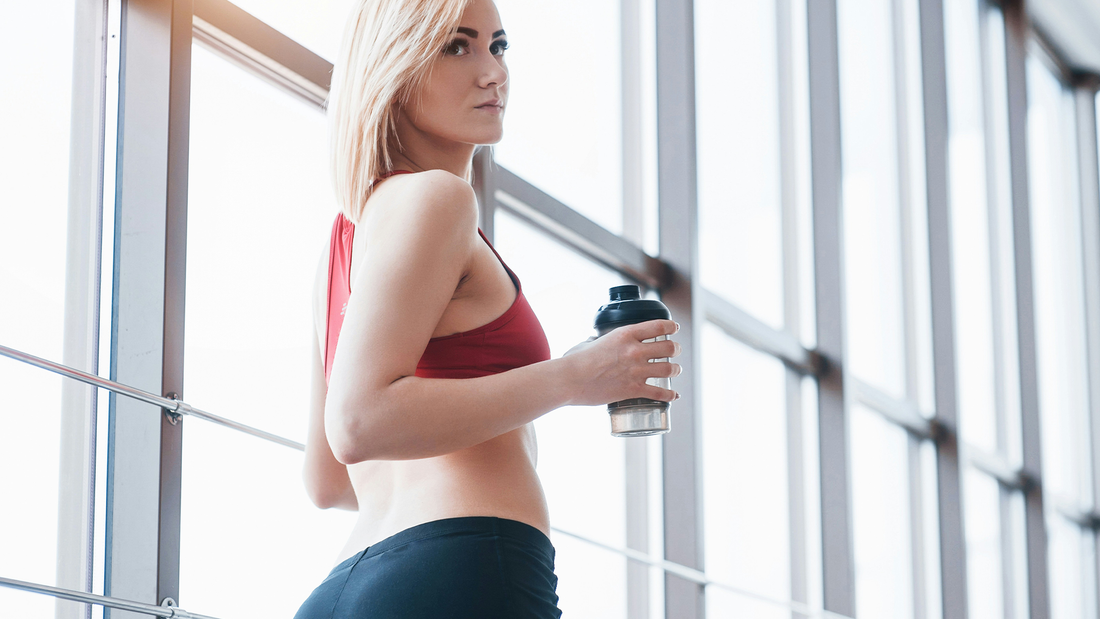
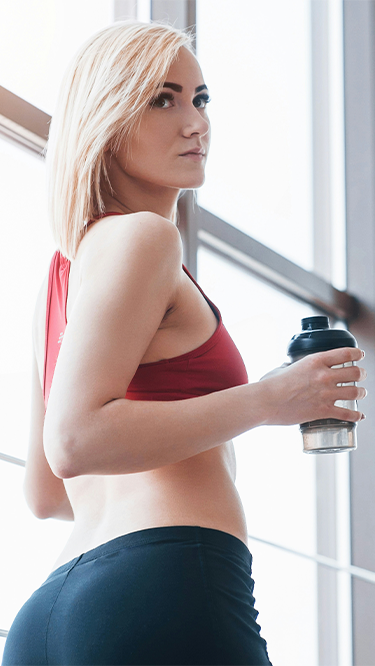
Why Do I Feel Bloated After Working Out?
Feeling bloated and uncomfortable after exercise is a common complaint among fitness enthusiasts. Why do you feel bloated after working out? Many people ask the same question. Bloating can make you feel discouraged about your workout and question if you're doing something wrong. The good news is that post-workout bloating is usually normal, and there are some simple ways to prevent or minimize it.
Why You Feel Bloated After Working Out
The discomfort of bloating can disrupt your feeling of satisfaction after a good workout. There are a few common causes of post-workout bloating to watch out for.
Hydration Changes
Your body needs more fluids during and after exercise to replace what you lose through sweat. This inevitably leads to some water retention and temporary bloating. Drinking too much water at once can exacerbate this. Stick to smaller swallows throughout your workout instead of guzzling a large bottle all at once. That allows your body to process the water more effectively without overloading your system.
GI Slowdown
When you exercise, your body directs blood flow towards your muscles and away from your digestive system. This can cause food to pass through your gastrointestinal tract more slowly, leading to gas, abdominal distension and bloating. This effect can last for hours after your workout. Avoid eating large meals right before or after exercising.
Hormone Changes
Physical activity triggers your body to release cortisol, a stress hormone. Higher cortisol levels lead to water retention and bloating. This hormone response is temporary and subsides when cortisol drops back to normal levels after exercise.
Swallowing Air During Exercise
Sometimes, you can attribute bloating to unintentional air swallowing during exercise. This often occurs when individuals breathe rapidly or gulp down water between sets. Swallowing excess air can lead to bloating and discomfort, making it important to be mindful of breathing patterns and fluid intake during workouts.
To reduce the risk of swallowing air, practice controlled breathing techniques and take small sips of water rather than gulping it down. This conscious approach to breathing and hydration can help minimize the likelihood of bloating associated with air ingestion.
Muscle Inflammation
Do you feel bloated after working out on strength training days? The micro-tears and inflammation that occur in your muscles following intense or novel exercise can lead to water retention and swelling. This normal immune response leads to moderate bloating that resolves within a day or so.
Gastrointestinal Disorders
In some cases, chronic gastrointestinal disorders such as irritable bowel syndrome or inflammatory bowel disease may contribute to post-workout bloating. These conditions can cause heightened sensitivity in the digestive tract, making individuals more prone to bloating and discomfort during and after exercise.
If you suspect an underlying gastrointestinal disorder, it is crucial to consult with a healthcare professional for a proper diagnosis and personalized treatment plan. Managing the underlying condition can help alleviate exercise-induced bloating.
Intense Workouts
When you start a new intense workout regimen or step up your normal routine to something more challenging, your body can react in unpredictable ways. Sometimes, that means bloating after your workout. If this happens, you’ll typically notice an improvement after the first few days or a week when your body adapts to the strenuous nature of the new routine.
Should I Worry About Feeling Bloated After Workouts?
Feeling bloated after workouts can be a common occurrence, and in many cases, it's a normal and temporary response to physical activity. However, whether you should worry depends on the severity, frequency and persistence of the bloating, as well as any accompanying symptoms.
So, why are you bloated after working out? In most instances, mild bloating after exercise is often attributed to the above factors, such as dehydration, electrolyte imbalances, or gas accumulation in the digestive tract. These issues are usually temporary, and you can address them through simple adjustments in hydration, nutrition and breathing techniques. It's essential to differentiate between occasional bloating and persistent discomfort that might signal an underlying problem.
If you also experience severe pain, cramping, or other digestive issues, it may be a cause for concern. Persistent symptoms could indicate gastrointestinal disorders. In such cases, seeking guidance from a healthcare professional is crucial for a proper diagnosis and tailored treatment plan.
How Can I Reduce Post-Workout Bloating?
While you can expect some bloating, you can take steps to minimize or prevent that puffy, gassy feeling after exercise.
Maintain Adequate Hydration
Hydration is important for your body, especially during a workout. The goal is to stay hydrated without consuming excessive amounts of water, which can contribute to bloating. Drink small amounts of an electrolyte-replenishing drink before, after and throughout your workout so that you stay hydrated without gulping down liquids.
Eat in Moderation
Why do you feel bloated after working out and grabbing something to eat? It’s important to avoid eating large meals or rich foods before or immediately after your workout. Opt for small, high-protein snacks to stave off hunger pangs and save the full meals until well after your cool-down. Not only that, but focusing on low-FODMAP foods can also reduce bloating and discomfort.
Add Probiotics
Incorporate probiotics into your diet on a regular basis. Probiotics boost your body’s digestion and help reduce bloating issues.
Consider Digestive Enzymes
Digestive enzymes can help your body break down food and prevent gas buildup. When you worry about slow digestion causing bloating and discomfort after a workout, digestive enzymes in advance might reduce the risk.
Include Adequate Stretches
Stretching your body and, in particular, your core, will help facilitate both digestion and gas relief. Allow plenty of time for stretching pre-workout to minimize the chances of trapped gas causing bloating issues.
Take Anti-Inflammatory Supplements
Anti-inflammatory supplements can help you minimize muscle inflammation, which can also contribute to systemic discomfort and bloating. Incorporate things such as turmeric, ginger and fish oil.
Why Do I Feel Bloated After Working Out Every Day?
Feeling bloated after your workout routine is annoying but generally harmless. With the right dietary and lifestyle tweaks, you can minimize post-workout bloating and continue making fitness gains. Be patient with your body as you adjust to a new program, and don't let minor bloating derail your workout plans. You can even track how your workouts are impacting your body by using ZOZOFIT's 3D body scanning app after you exercise.

![zf-w-[168px] zf-h-[40px]](http://zozofit.com/cdn/shop/t/15/assets/logo-desktop.png?v=117713855448369080381753069598)


